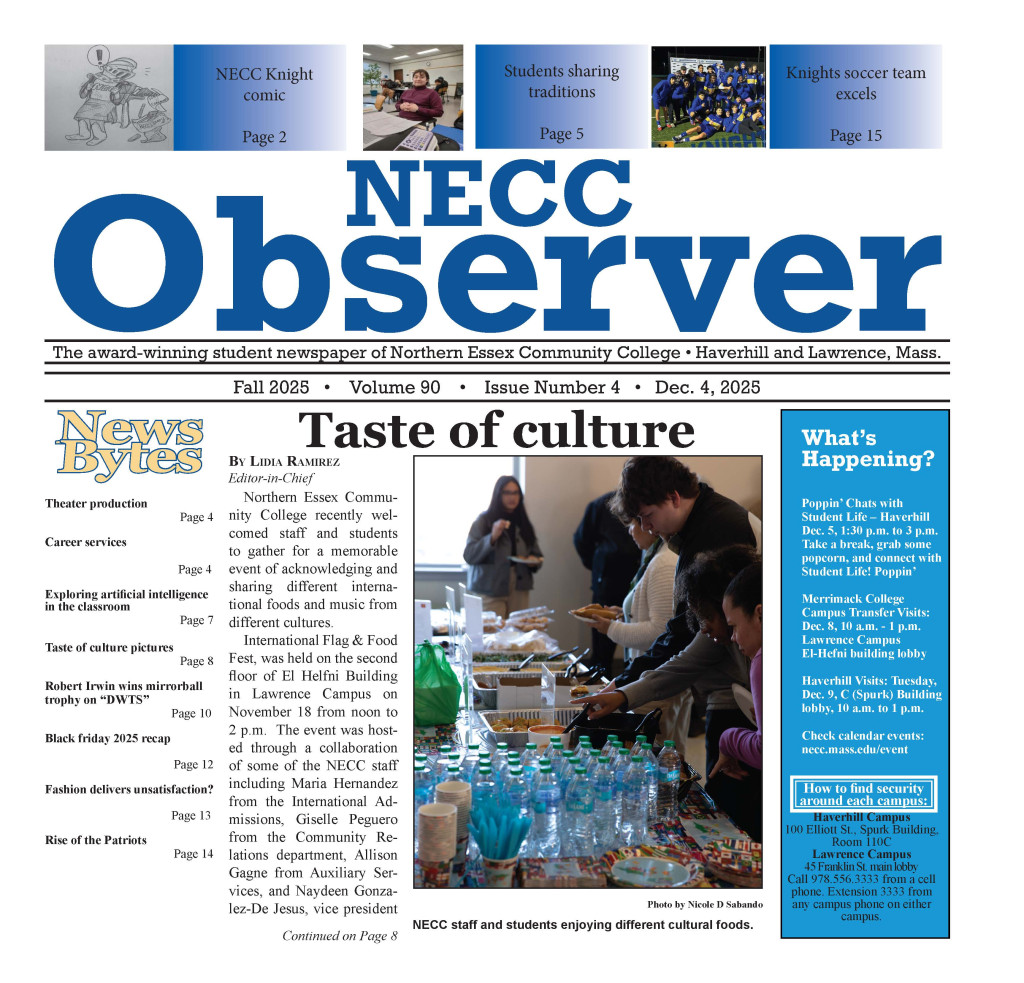COVID-19 has altered the ways that individuals approach education.
One of these things that have changed is the prominence of online classes. Even now, when in-person courses are up and running, many people still opt to take their classes virtually.
One of these students is Avery Hochheiser, an early college student at Northern Essex Community College (NECC).
Hochheiser is taking Journalism I and Honors Seminar online this spring. She has been working towards an Associates Degree in Liberal Arts Writing for the past two years, exclusively taking classes online.
As a high school student, if she had to take courses in person, they may conflict with her high school schedule and prevent her from finishing her degree. In addition, she didn’t have her driver’s license last year, so she would have had to be dependent on her parents to take her to these classes.
Overall, without online courses, Hochheiser would not have been able to make it as far as she has in her degree and most likely would not have the opportunity to complete it.
Cassidy Smith, an Early College student at NECC, is taking classes so she will be able to transfer them to the college she goes to in the future.
Since Smith’s schedule is packed with her high school classes like AP US History and AP Language, she doesn’t have the time to drive to NECC to take courses during the school day.
She is also frequently swamped after school with extracurriculars and work, which would complicate taking nighttime classes. She expressed that Hansen 2 she was very grateful for online courses since they allowed her to further her education without it complicating her life too much.
Gianna McKeown is another early college student at NECC. She is currently taking English Composition II and Accounting. Her experience with online classes has been a positive one.
Though she says she misses seeing her teachers in person, she is grateful for how involved and willing to communicate most of her online teachers have been.
She also noted that the discussion posts that are a part of most of her classes have allowed her to stay connected with her fellow classmates and feel like a part of the community.
If students are interested in taking classes online, they can go to the course search tool on the NECC website and add a filter for 100% online classes.
Registration for summer classes is still open, and classes start on May 16 and run until June 24.


